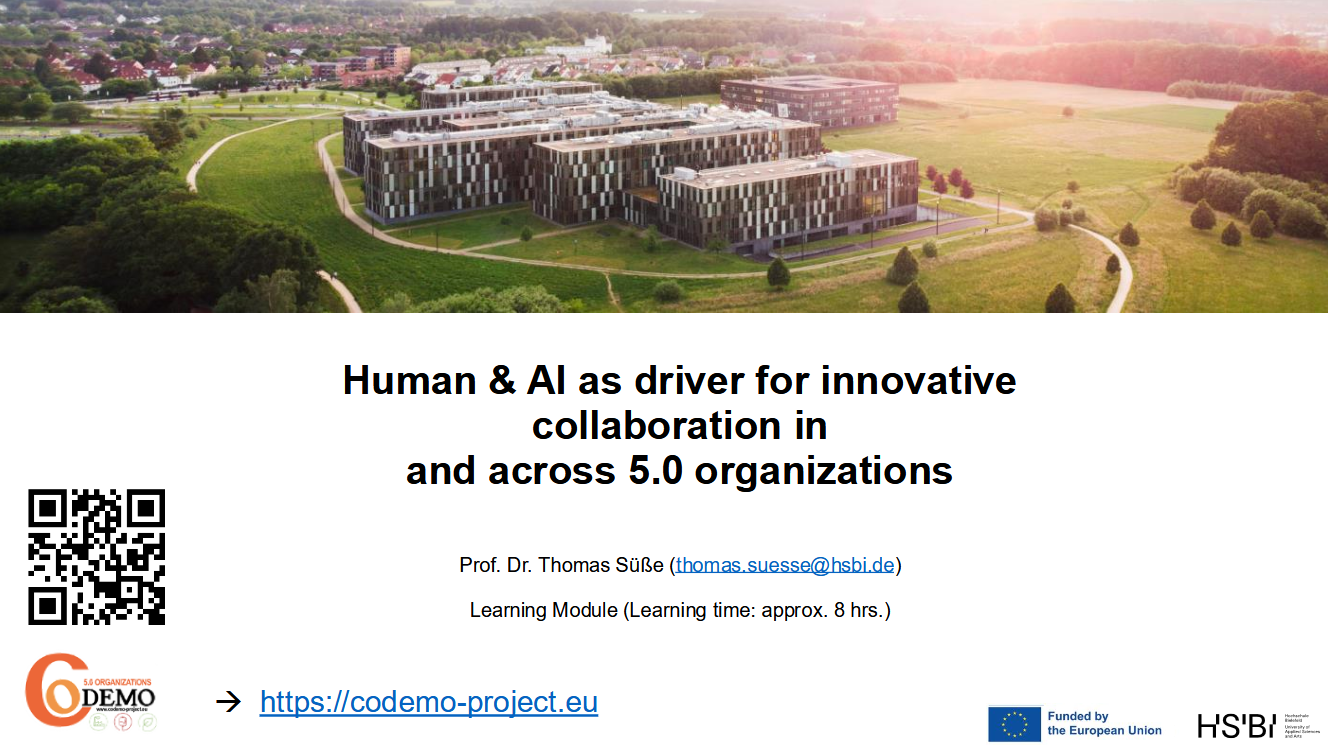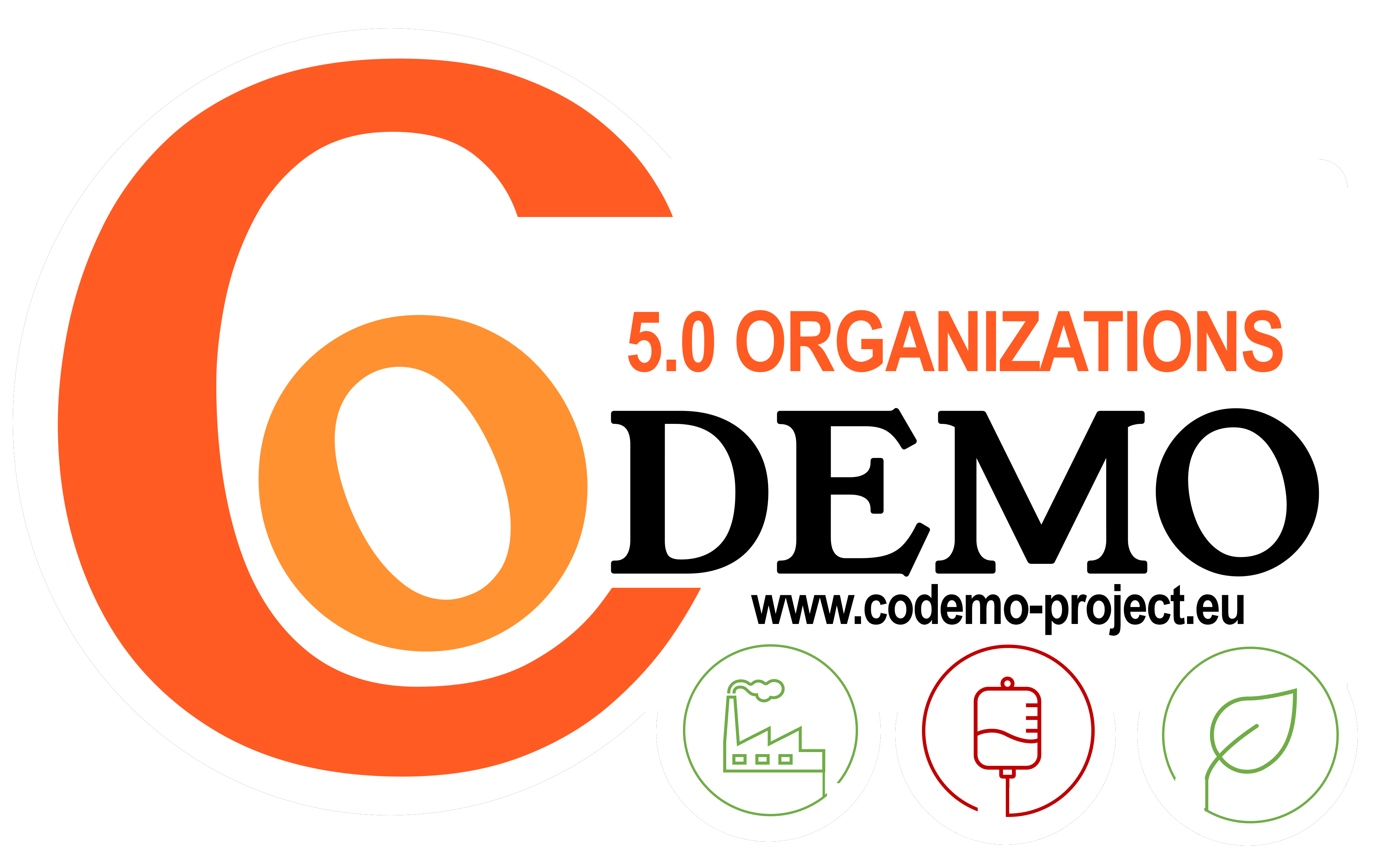This learning module, titled “Human and AI as Drivers for Innovative Collaboration in 5.0 Organizations”, explores the evolving dynamics of human-AI interaction in modern workplaces. It aims to help participants understand the principles of human-centered AI, critically analyze interaction models like “human-in-the-loop” and “AI-in-the-loop,” and apply empirical research findings to real-world scenarios.
The learning module is structured into five sections: an introduction to human-AI interaction, an exploration of digitalization’s purpose in “5.0” organizations, an analysis of empirical research across different industries, a conclusion summarizing key insights, and a reflective exercise encouraging personal engagement with the concepts.
Key themes include the diversity of human-AI interactions and the growing importance of digitalization in fostering sustainability, human resilience, and ethical AI integration. Empirical case studies examine AI’s role in production (remanufacturing spare parts) and service industries (insurance software development). These studies reveal cognitive, emotional, and social aspects of human-AI collaboration, such as understanding AI’s learning processes, adapting to technical innovations, and appreciating AI as a complementary “virtual colleague.”
The presentation highlights the transformative impact of AI on work and innovation. It emphasizes the dual relevance of human and AI roles in decision-making and collaboration, aligning with the “5.0” framework that prioritizes sustainability and human-centered technology integration. Participants are encouraged to reflect on their preferred models of AI collaboration and consider their implications for ethical and innovative practices in their work environments.


